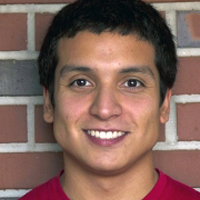
Center for Genomics and
Personalized Medicine at Florida
State.
Florida State University is unveiling a unique, interdisciplinary center that will bring together scientists from across the campus to do cutting-edge genetic research.
The Center for Genomics and Personalized Medicine will build upon genomics research already being done at FSU. The center will help researchers use large amounts of data generated by next-generation instruments that could answer fundamental questions about how our genes affect everything from basic biological functions to major diseases such as cancer or diabetes.
“This new center is an exciting step forward for Florida State University,” said Gary K. Ostrander, vice president for Research. “This will bring together researchers in a variety of fields to answer long-standing questions through extensive collaboration.”
Daniel Vera, who recently completed his doctorate in biology at Florida State, will serve as the center’s director.
“New technology has given rise to the boom in genomics research,” said Vera, who did both his undergraduate and graduate work at Florida State. “You can use it for a lot of different applications — assembling and identifying new genomes or medical applications to identify pathways for cancer.”
The center has been in the works for the past two years by an advisory committee led by computer science Professor Gary Tyson. Tyson, along with Professor David Gilbert and Associate Professor Jonathan Dennis of the Department of Biological Science and College of Medicine Associate Professor Michelle Arbeitman, has advocated that the university needed a mechanism to provide more resources and training to scientists who are not equipped to handle big data sets.
The institute will bring together researchers in the Department of Biological Science, Department of Computer Science and the College of Medicine who are working on similar problems. Organizers hope it will also eventually attract interest from researchers in math, statistics and engineering.
“What was really necessary was to provide the computer science skills for the faculty to expand their research into genomics,” Tyson said. “Most biologists are not trained to handle these big data sets. They can ask the questions and have the background knowledge, but they need the computer scientists to really work these numbers.”
Gilbert, Dennis and Arbeitman are among researchers who have run their labs for years with an eye toward big data. But the area of genomics is so pervasive that it is almost becoming an expected part of many scientists’ inquiries whether the scientist is trained to do the work or not.
“This is a huge bottleneck for many researchers,” Gilbert said. “Opening a pinhole in that floodgate will provide huge opportunities for Florida State researchers.”
Through the new institute, Vera will assist researchers analyze genomics data, train undergraduate and graduate researchers, offer workshops and assemble interdisciplinary teams to apply for large grants.
One project already in development is the sequencing and characterization of the genomes of several endangered species, including the gopher tortoise and the Florida panther.




